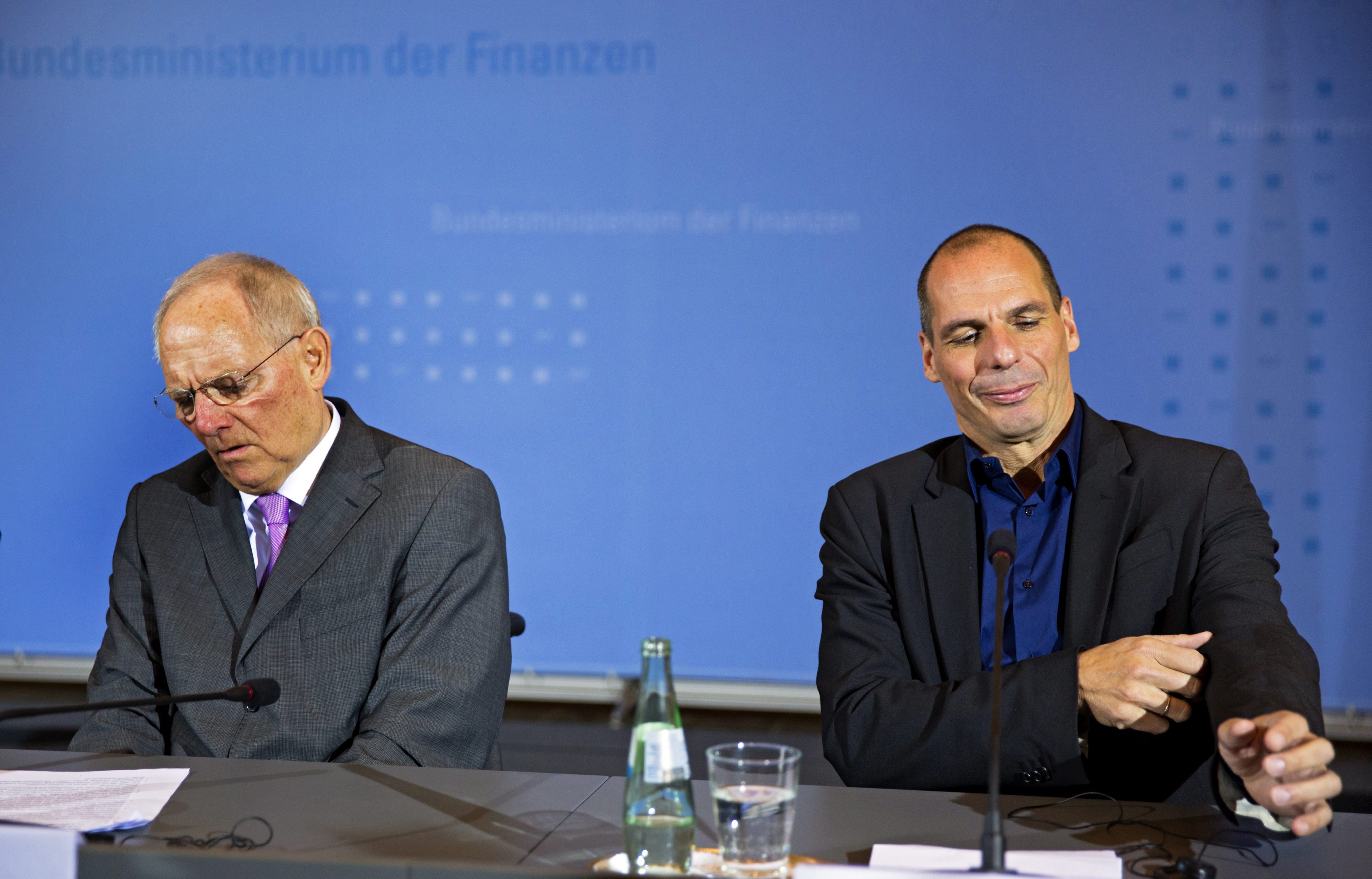The Eurogroup on Friday is expected to be “a tough one”, according to a high-ranking financial officer, who is in the position to know the environment and circumstances of the negotiations.
At the evening Euroworking Group session on Thursday, where the Finance Ministry Council prepares, was hard, but with intent to compromise.
They concluded to a plan shortly before midnight, which may be the basis for an agreement at the Eurogroup.
According to reliable sources, even the German representatives were in the mood to talk, which allows one to draw the conclusion that Wolfgang Schäuble – the “old fox” of German national neoliberalism, who launches threats, speaks in an unacceptable manner about a “Greek Trojan horse” and rallies Germany’s satellites against Greece by referring to a Grexit – is essentially negotiating, aiming to get as much as he can and above all to “crush” his counterpart Yanis Varoufakis and write off the Greek Prime Minister, who dared to counteract and directly dispute his politics.
The common belief late on Thursday evening was that a well-prepared document from the Euroworking Group would be submitted on Friday’s Eurogroup and which could be the basis for an agreement. Well-informed sources reported that there might be some problems in the decision plan, which would be debated and resolved by the Finance Ministers.
Despite this though, nobody could safely predict the outcome of the Finance Ministers’ session.
The telephone contacts of Mr. Tsipras with Merkel, Hollande and Renzi were in a friendly spirit, according to the Greek government sourcs, but nothing is certain as the Greek reserves of retreat are almost depleted. The steps on Thursday may have been deemed important by most Europeans, but they brought the leadership of the newly-elected Greek government to its limits.
In any case the negotiation on Friday will be difficult for the Greek representatives.
If something “goes wrong” we will clearly have entered a new phase. In this case the next few days will be very different. The European Central Bank will be the main pressure level, which will at first cut off ELA funding to the Greek state.
The central bankers will not be prepared to accept further risk with the Greek state and will cut off European Central Bank’s funding.
The ELA funds will only cover the needs of the private sector, businesses and bank depositors.
As Frankfurt explains, they do not want to block the private sector of the economy or leave it on its own fat.
Antonis Karakousis





